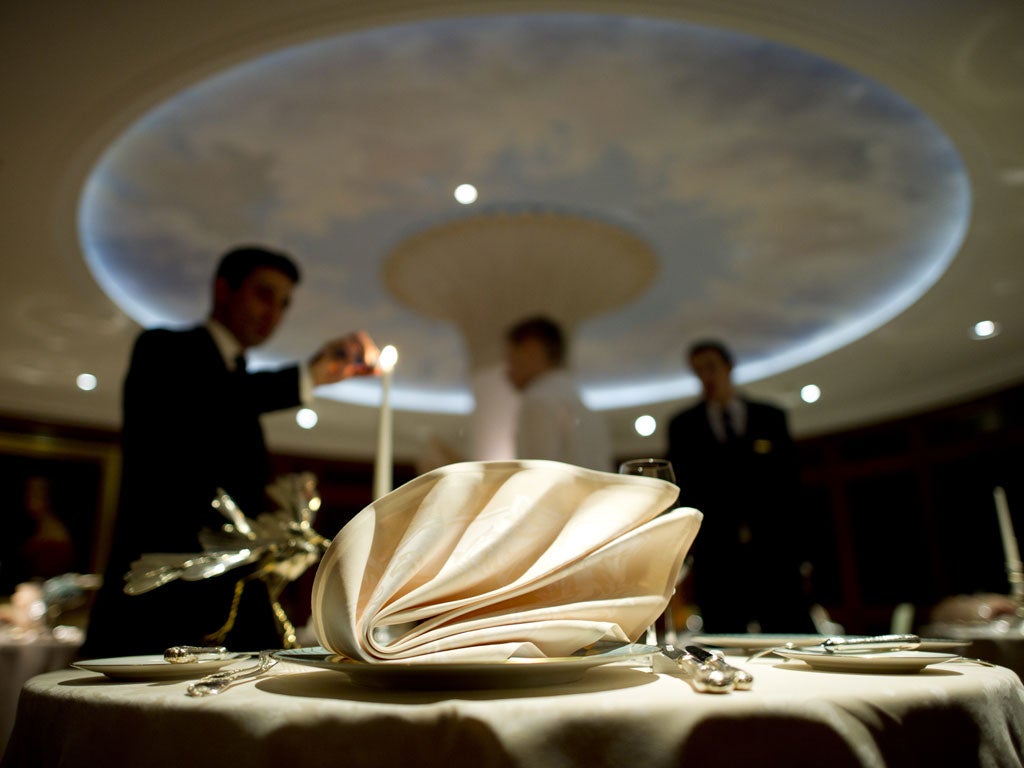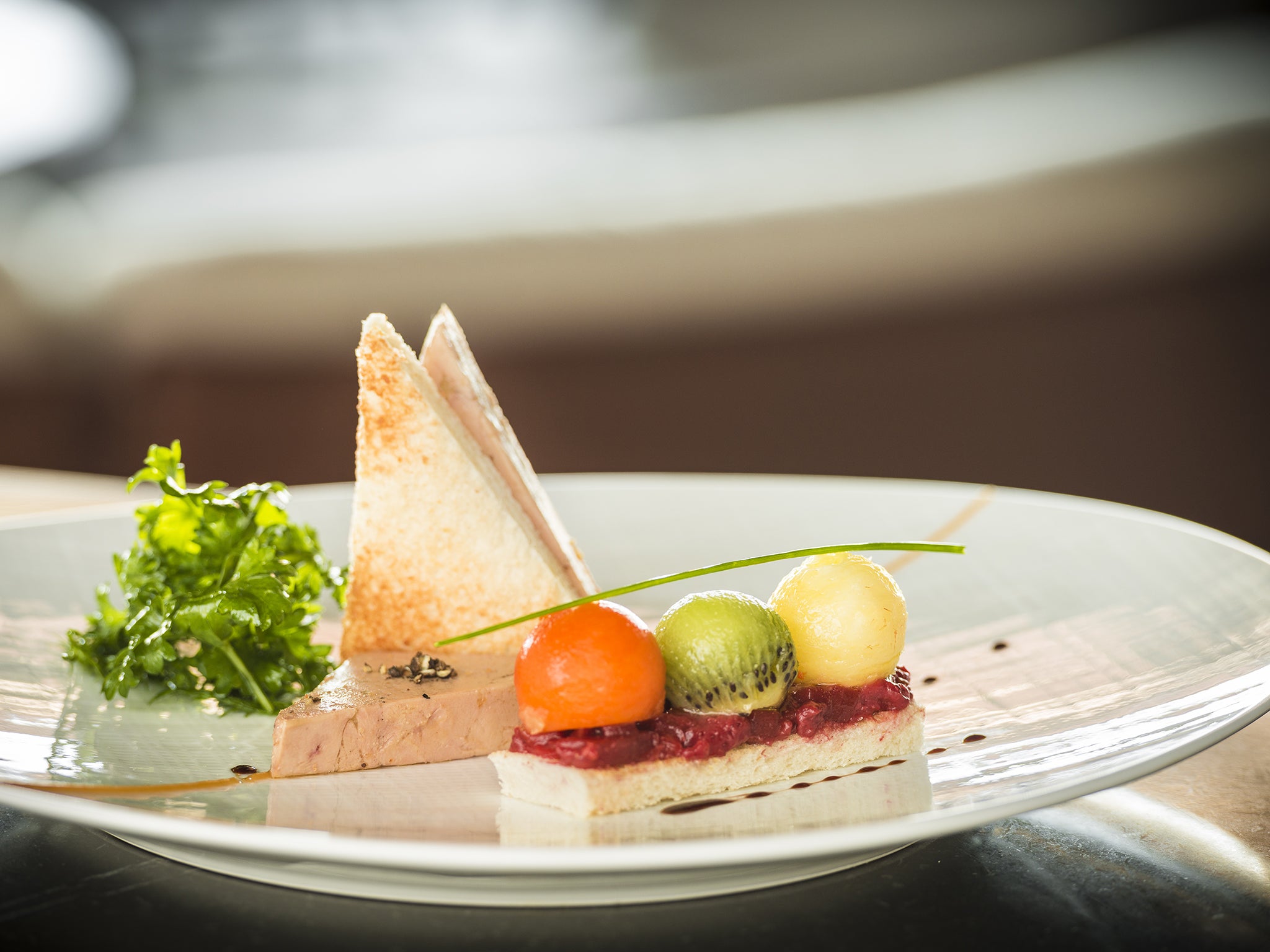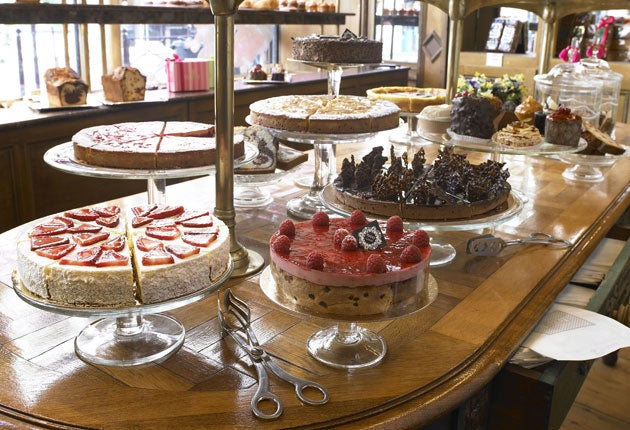Diners associate fine restaurants with sexual pleasure, say scientists
But cheap eateries are more associated with drug addiction

Your support helps us to tell the story
From reproductive rights to climate change to Big Tech, The Independent is on the ground when the story is developing. Whether it's investigating the financials of Elon Musk's pro-Trump PAC or producing our latest documentary, 'The A Word', which shines a light on the American women fighting for reproductive rights, we know how important it is to parse out the facts from the messaging.
At such a critical moment in US history, we need reporters on the ground. Your donation allows us to keep sending journalists to speak to both sides of the story.
The Independent is trusted by Americans across the entire political spectrum. And unlike many other quality news outlets, we choose not to lock Americans out of our reporting and analysis with paywalls. We believe quality journalism should be available to everyone, paid for by those who can afford it.
Your support makes all the difference.People associate the luxury of an expensive restaurant with sexual pleasure, while eating tasty food in a cheap diner is more likely to be compared with drug addiction and physical trauma, scientists found.
Diners at luxury restaurants praise the “orgasmic pastry” and “seductively seared foie gras”, whereas patrons of less salubrious establishments justify their food choices by claiming “the fries were like crack” or that they are “addicted to wings”.
The findings come from a language analysis of more than 900,000 online reviews of 6,500 restaurants across seven American cities. The study compared the wording people used in giving good and bad reviews, as judged by how many stars they gave to a restaurant.
“The more expensive the restaurant, the more likely you are to describe the food in terms of sex,” Dan Jurafsky, Professor of linguistics at Stanford University in California, told attendees at the American Association for the Advancement of Science convention in San Jose.
“If you like a very expensive restaurant, you use words like ‘orgasmic’, ‘sensual’, ‘sexy’ – and my favourite phrase was ‘a very naughty deep-fried pork belly’,” Professor Jurafsky said.

“We don’t have a convincing answer to why this was the case. It may be that we associate dating with expensive restaurants. Both men and women used the language of sex in expensive restaurants.
“By contrast, the words used to describe cheaper restaurants were more like ‘crave’, ‘drugs’, ‘crack’ and ‘heroin’. When people talk about cheap food – when they talk about french fries, pizza or chocolate – they use the language of drugs,” he told the meeting.
“By saying you are ‘addicted’ or you ‘crave’ some food, you are really putting the agency on the food – it’s not my fault I was forced to eat something, I was addicted to it.
“Women were more likely to describe food as an addiction. Men, interestingly, were more likely to use the language of trauma in their one-star restaurant reviews,” he added.

The trauma of a bad restaurant experience is communicated by the use of the third-person plural, such as “we”, “us” and “our”, which emphasises the collective nature of the experience, Professor Jurafsky said.
“The language of one-star reviews is very specific, such as using the past tense rather than the present tense. These reviews used a lot of pronouns and mentions of other people… they use the words ‘we’, ‘us’ and ‘our’,” he said.
Previous scientific literature had shown that this language use is characteristic of people writing after they had been traumatised, the professor said.
“They distance themselves from the event by putting it in the past tense. They use the first-person plural to show that a bad thing happened to us as a group and we’re going to get through it together,” he told the meeting.
“The idea of getting through suffering collectively is there in these one-star reviews. They are not talking about the food, they are reminiscing about a small trauma that happened to them.”
Join our commenting forum
Join thought-provoking conversations, follow other Independent readers and see their replies
Comments